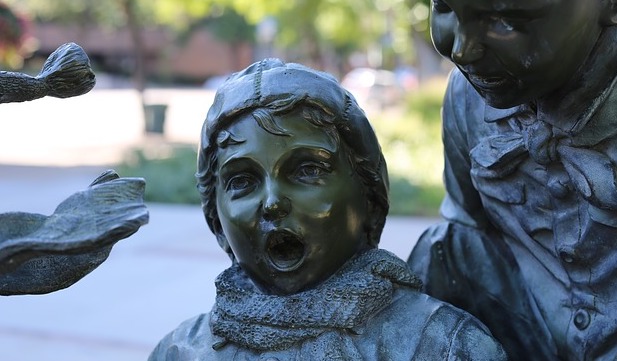Your Online Presence - What's More Important Than A Website?
New self-published authors and indie publishers often rush to get a website online for their books, but there are other places you need to focus on that may end up being far more important.

New authors often rush to make a website dedicated to their books. But, to be successful, a website isn't the end of your online presence. To be honest, it probably shouldn't even be the beginning. Here are a few pages you can control that may turn out to be far more valuable than your website for promoting books.
Amazon's Author Central
If you are traditionally published, your publisher will take care of your book's online metadata to ensure your book pages on Amazon are up-to-date, you still need to take care of your Author Central page yourself.
Well over 50% of all book sales in the US go through Amazon.com, so it is more than worth your while to add as much information to the sections under your control as you can.
So, what can you add? Your author page gives you room to write your bio, upload photos, your Twitter feed, a blog's RSS feed, upload videos, and list upcoming author events.
It also gives you an opportunity to add a book to your bibliography that they might not have connected, and keep an eye on your sales stats and reviews. Again, given the huge amount of clout Amazon has in the book industry, it is more than worth your while to revisit Author Central on a regular basis to keep all your information up to date.
And, once you've created your Author Central page at Amazon.com, you can also create custom author pages at Amazon U.K, Germany, France, and Japan.
Goodreads Author Page
Another Amazon property, Goodreads is a great resource for authors. As long as you have a book in their database, you can join the Goodreads Author Program. This program gives you a way to claim your books, promote your titles, interact with readers.
Your first task is to fill out your profile. Add as much information as you can. You can add your favorite authors, your biography, and your genres. All of these items will help you get found by potential readers.
Aside from filling out your profile, you also get an author blog. Use this to your advantage. As a popular site for readers, quite often your blog pages on Goodreads will rank highly on search engine results.
Participating in various groups on Goodreads can help you connect with readers who are passionate about your genre. On the Goodreads site, all actions lead back to your author page, so adding book reviews and comments on books you are reading can bring more awareness as well.
This is not an account you should neglect once setting up an account. Make it a new habit to review and check your messages here frequently in order to answer questions and comments from readers in a timely manner.
Some authors like to brag about their ignorance of social media, but smart writers see the various platforms as another tool for promoting your books. Even if you're not personally active on the platform, Facebook is an important part of your marketing strategy.
Creating an author fan page is simple. Create a new page on Facebook, choose the box for Artist, Band or Public Figure and use the dropdown box to choose Author.
You might be tempted to create a page for each book or series instead of creating one author page. This can be a reasonable strategy, but it is easier to get fans for one page than it is to create an audience for multiple pages.
Your page can include a profile/biography, your photo, and all the engaging content you can dream up.
If you are going to attend book fairs, or have scheduled a book signing, Facebook also enables you to invite friends and fans to events created on the platform in order to help drum up support and awareness for those appearances.
Finally, Your Website
Your website can either be a highly effective tool in your book promotion arsenal, or it can have no effect whatsoever. In order to have the best chance of being the former, you'll need to do consider carefully what you want your site to do, and what visitors to your website might need.
A few mistakes you might wish to avoid when creating your website are outined in a separate article. You can read it here.
Read These Next
Potential Benefits of AI to the Book Publishing Industry
In a world where technology continues to revolutionize various industries, artificial intelligence is leaving its mark on the book publishing and bookselling sectors. This article considers the beneficial aspects of AI on the book industry.
Notes on the Romance Publishing Industry
On the top of popular fiction charts sits the often disrespected romance genre, but these stories of love and happily-ever-after manage to keep many publishers afloat, as readers purchase from publishers both large and small.
The Dangerous Side of Children’s Books
As an author, if you’re inspired to delve into the slightly dangerous, dark or subversive corners of childhood with your books, feel free to do so. Don’t limit yourself to all that’s bright, safe and up to code.






